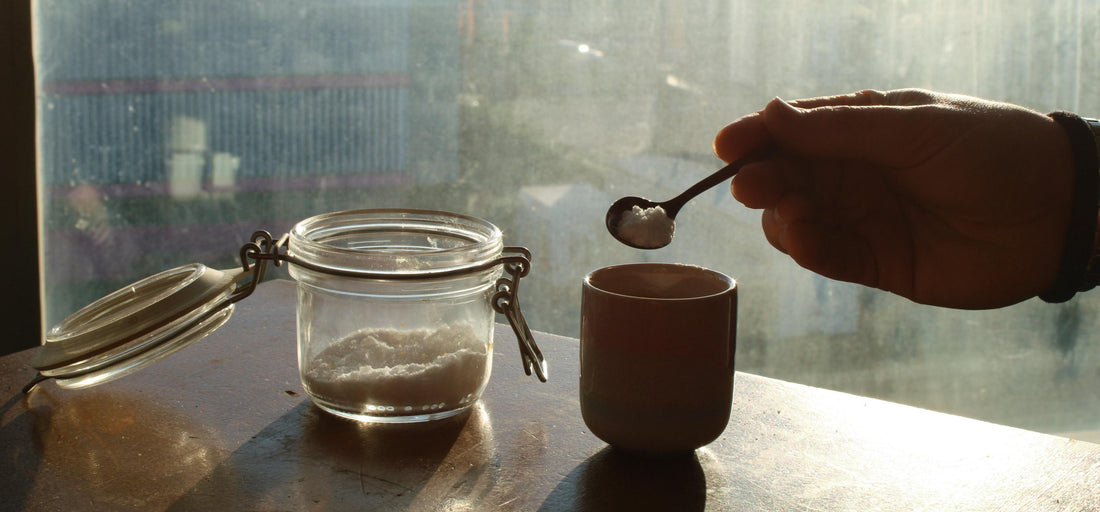
Sugar in Coffee: A Mask That Covers Its True Essence
Coffee is not simply a drink. It is an ancient ritual, a bridge between cultures, a break that marks our days. Each cup contains stories of distant lands, of expert hands that select the best fruits, of meticulous processes that transform a simple cherry into a concentrate of aromas and flavors. But often, with a simple gesture, all this is hidden: the addition of sugar.
Many people think that coffee is naturally bitter and that sugar is the only way to make it palatable. This is one of the biggest misconceptions about this drink. Coffee, when grown, processed and prepared correctly, is not bitter. It is an explosion of complex flavors, a delicate balance between natural sweetness, lively acidity and a rounded body. Adding sugar, however, disrupts this balance, covering the subtle nuances and depriving the coffee of its true soul.
Coffee Is Not Bitter: It's Complex
The idea that coffee is bitter often comes from experiences with low-quality or poorly brewed coffee. Over-roasted beans, poor extractions, or poorly made blends can create off-flavors, leading people to mask them with sugar. But real coffee, the kind that's been carefully crafted, offers a rich and surprising flavor profile.
Arabica varieties, for example, can express floral, fruity, chocolate, citrus or honey notes. Each bean is influenced by the terroir in which it grows, the processing method and the roasting. The result is a drink that tells a complex and fascinating story, which risks being suffocated as soon as sugar enters the scene.
Sugar: The Deception of the Palate
Adding sugar to coffee is like putting a veil over a work of art. Sure, the drink becomes sweeter and more comforting, but at the cost of losing depth and character. Sugar acts like a mask that flattens the taste, covering the more delicate aromatic notes and making each cup taste like the last, regardless of the quality or origin of the beans.
Sugar not only covers the defects of low-quality coffee, but also the virtues of fine coffees. The light acidity that gives vivacity, the natural sweetness that emerges from processing methods such as natural or honey, the floral and fruity nuances: everything is cancelled out under the homogeneous sweetness of sugar.
The Sweetness Hidden in Coffee
One of the most surprising aspects of quality coffee is its intrinsic sweetness. Ripe beans, harvested at the right time and processed with care, can offer natural sweetness that does not require any additives. Processing methods profoundly influence the aromatic profile: natural or honey coffees, for example, retain part of the cherry pulp during drying, giving notes of honey, caramel and dried fruit.
Extraction also plays a key role. An over-extracted coffee can be bitter and unpleasant, while a well-balanced extraction will bring out the sweetest and most harmonious notes of the bean. This is where the sensitivity of the coffee maker comes into play: understanding how to enhance the natural qualities of the bean without the need for coverage.
Rediscover the True Taste of Coffee
Switching from a sugary coffee to a sugar-free one may seem like a challenge, but it is a journey that leads to rediscovering the true taste of this drink. Re-educating the palate requires time and patience, but the result is a much richer and more rewarding sensory experience.
Here are some tips for approaching coffee without sugar:
-
Choose quality coffee: Opt for specialty or single-origin coffees. These beans are often treated with more care and offer complex, balanced flavor profiles.
-
Experiment with different brewing methods: The method greatly affects the taste. A V60, Chemex, or Aeropress can bring out fruity and floral notes that might otherwise be lost in espresso.
-
Reduce sugar gradually: If you are used to drinking very sweet coffee, start by decreasing the amount of sugar little by little. Your palate will gradually adapt and you will begin to perceive new nuances.
-
Try coffees with different flavor profiles: Learn how different origins affect flavor. An Ethiopian coffee may have floral and citrus notes, while a Brazilian coffee may offer hints of chocolate and hazelnut.
Coffee as a Sensory Experience
Coffee is much more than just a stimulant to face the day. It is a complete sensory experience, a journey through aromas and flavors that deserves to be fully experienced. Adding sugar is like putting filters on this journey, missing the most beautiful and surprising stages.
Drinking coffee without sugar is not an act of purism, but an invitation to discover a beverage in its most authentic form. It means respecting the work of those who grow, select and process the beans with care. It is a way to truly appreciate the complexity of a product that has crossed continents and expert hands before arriving in our cup.
Next time you sip a coffee, try to do it without sugar. Listen to the aromas that are released, let your palate explore the hidden notes. You might discover that the coffee you have always drunk was not so bitter, but just misunderstood. And perhaps, once you discover its true essence, you will never go back.
